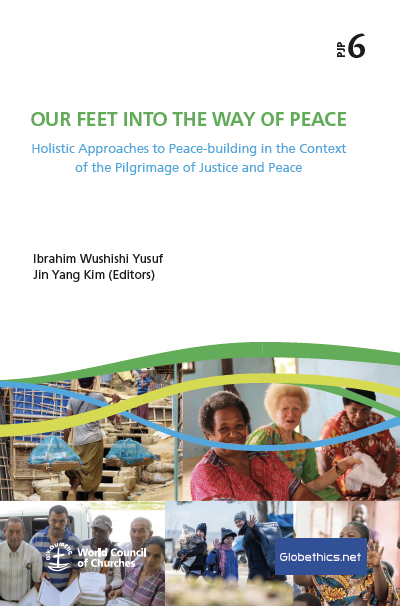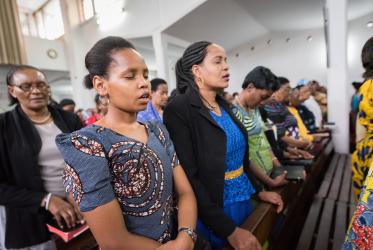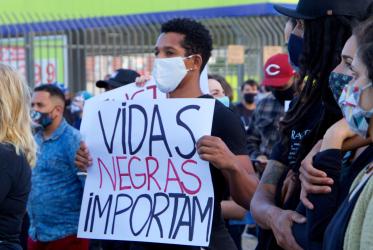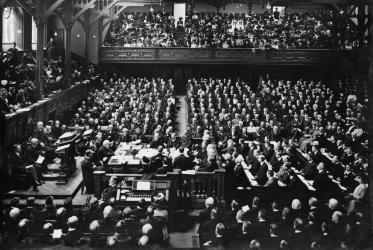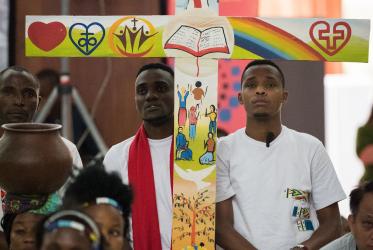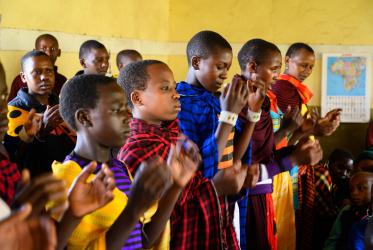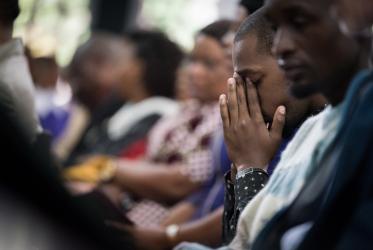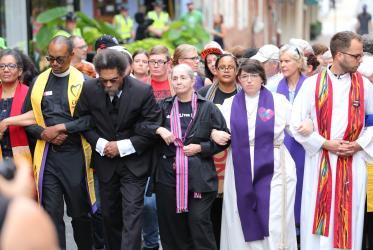Displaying 1 - 20 of 24
Explorations on Global Christianity and Ecclesiology, Faith and Order Paper 234
14 November 2022
Seek Peace and Pursue It: PJP Series 4
Reflections on the Pilgrimage of Justice and Peace in Europe
22 August 2022
Our Feet into the Way of Peace: PJP Series 6
Holistic Approaches to Peace-building in the Context of the Pilgrimage of Justice and Peace
19 August 2022
Hate Speech and Whiteness: PJP Series 5
Theological Reflections on the Journey Toward Racial Justice
19 August 2022
Towards an Ecumenical Theology of Companionship: PJP Series 3
A Study Document for the Ecumenical Pilgrimage of Justice and Peace
19 August 2022
Called to Transformation - Ecumenical Diakonia
09 June 2022
Specialized Ministries Pre-Assembly
09 - 10 March 2022
WCC pre-Assembly consultation on Overcoming Racism, Racial Discrimination and Xenophobia
06 - 10 December 2021
Geneva, Switzerland
WCC Faith and Order webinar: "The whole people of God: the roles and ministries in the church”
02 December 2021
Online
Missiological conference - Centenary of the International Missionary Council
16 - 18 November 2021
Online
Book launch: "Call to Discipleship”
10 November 2021
https://us02web.zoom.us/webinar/register/WN_eGpv-vH5TFGUXEg9xFyBmQ
WCC Commission on Faith and Order Webinar: “The Church in and for the world - the Church in mission”
21 June 2021
https://us02web.zoom.us/webinar/register/WN_Qf7H2bOUTSCYpQzY8rjiIQ
Online event-“Anti-racist in Christ? Ecumenical Christian Repentance, Reflection and Action on Racial Discrimination and Xenophobia.”
14 - 17 June 2021
https://us02web.zoom.us/webinar/register/WN_U6s791s5TPqMZAywAFMdYA


